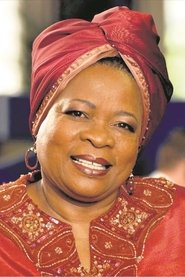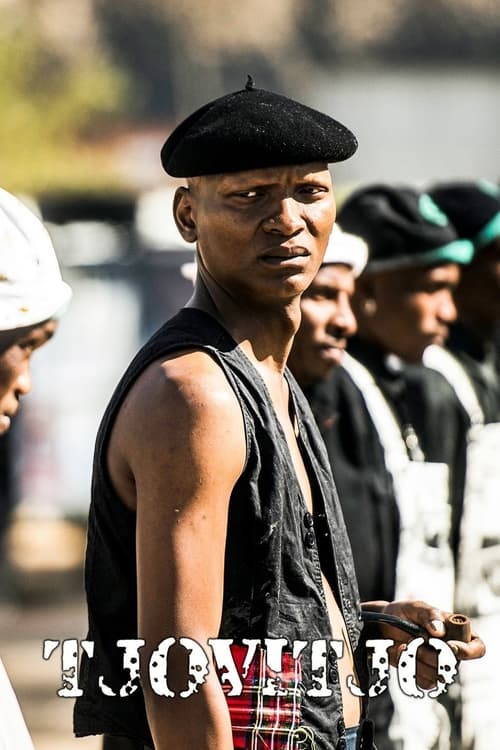
Ask Your Own Question
What is the plot?
Nqobile opens with a sweeping aerial shot of a vibrant township in South Africa, where we meet the protagonist, Nqobile, a young woman in her early twenties. She is introduced as a passionate community activist, working tirelessly to improve the living conditions in her neighborhood. The scene captures her leading a meeting with local residents, discussing issues such as access to clean water and education. Nqobile's determination is palpable as she speaks, her eyes shining with hope and conviction.
As the story progresses, we learn about Nqobile's family background. Her mother, a single parent, struggles to make ends meet, working multiple jobs. Nqobile feels the weight of responsibility on her shoulders, wanting to uplift her family while also pursuing her dreams. A poignant moment occurs when she finds an old photograph of her late father, a former activist, which inspires her to continue his legacy.
The narrative shifts when Nqobile discovers that a large corporation plans to build a factory in their community, which would displace many families. This revelation ignites her passion further, and she rallies the community to protest against the development. The tension escalates as the corporation sends representatives to negotiate, but Nqobile remains steadfast, refusing to back down. Her internal conflict grows as she grapples with the fear of losing her home and the pressure to protect her community.
In a pivotal scene, Nqobile confronts the corporate representatives during a town hall meeting. Her eloquent speech about the importance of community and the dangers of corporate greed resonates with the audience. However, the representatives dismiss her concerns, leading to a heated exchange. Nqobile's frustration boils over, and she vows to take more drastic action to stop the factory from being built.
As the protests gain momentum, Nqobile faces backlash from some community members who fear the repercussions of standing up against the corporation. This creates a rift in her relationships, particularly with her childhood friend, who believes that the factory could bring jobs and economic growth. Nqobile feels isolated but remains resolute in her beliefs, leading to a powerful scene where she stands alone in front of the construction site, defiantly holding a sign that reads "Our Home, Our Rights."
The plot thickens when Nqobile receives anonymous threats warning her to cease her activism. This moment heightens the stakes, and she confides in her mother about her fears. Her mother, initially hesitant, ultimately supports Nqobile's fight, sharing her own experiences of standing up against injustice. This emotional exchange strengthens their bond and fuels Nqobile's determination.
In a dramatic turn of events, Nqobile and her allies organize a large-scale protest that draws media attention. The day of the protest is filled with tension as they march towards the construction site, chanting slogans and holding banners. The police arrive to disperse the crowd, leading to a chaotic confrontation. Nqobile stands at the forefront, urging her fellow protesters to remain peaceful. However, as tensions rise, a scuffle breaks out, and Nqobile is arrested.
While in custody, Nqobile reflects on her journey and the sacrifices she has made. She is released after a few hours, but the experience leaves her shaken. Upon returning home, she finds her community more united than ever, with many people inspired by her bravery. This moment of solidarity reignites her hope and determination to continue the fight.
The climax of the series occurs when Nqobile and her allies decide to take legal action against the corporation. They gather evidence of the environmental impact the factory would have on their community. Nqobile's leadership shines as she coordinates efforts to build a strong case, working late nights and rallying support from local lawyers and activists.
In the final episodes, the court case unfolds, showcasing the struggles and triumphs of Nqobile and her team. The courtroom scenes are intense, with emotional testimonies from community members detailing the potential loss of their homes and livelihoods. Nqobile's passion and resolve are evident as she takes the stand, sharing her personal story and the importance of preserving their community.
The series culminates in a tense verdict announcement. The courtroom is filled with anticipation as the judge delivers the ruling in favor of the community, halting the construction of the factory. Nqobile's reaction is a mix of relief and joy, as she embraces her friends and family, celebrating their hard-fought victory.
In the closing scenes, Nqobile reflects on the journey she has taken, standing in front of her community with a renewed sense of purpose. She acknowledges the challenges ahead but is determined to continue advocating for her neighborhood. The series ends on a hopeful note, with Nqobile leading a new initiative to further improve the lives of those around her, embodying the spirit of resilience and community empowerment.
More TV Shows Like This
Browse All TV Shows →What is the ending?
In the ending of "Nqobile," the protagonist, Nqobile, confronts the harsh realities of her life and the choices she has made. After a series of emotional confrontations and revelations, she ultimately decides to embrace her identity and take control of her future, leading to a bittersweet resolution where she finds a sense of peace despite the challenges ahead.
As the final episode unfolds, the scene opens in Nqobile's modest home, where she sits at the kitchen table, her face illuminated by the soft morning light filtering through the window. The atmosphere is heavy with unspoken words as she reflects on her journey. The camera captures the weariness in her eyes, a testament to the struggles she has faced. Her mother, a strong yet traditional figure, enters the room, and they share a tense but necessary conversation about Nqobile's choices and the expectations placed upon her. The dialogue is charged with emotion, revealing the deep-seated fears and hopes of both women.
Transitioning to a flashback, we see Nqobile in her youth, filled with dreams and aspirations. The vibrant colors of her childhood neighborhood contrast sharply with her current reality. This juxtaposition highlights the loss of innocence and the weight of societal pressures that have shaped her life. The flashback serves as a poignant reminder of what she has sacrificed along the way.
Returning to the present, Nqobile receives a phone call from her estranged friend, who has been a source of support throughout her struggles. The conversation is filled with warmth and understanding, providing Nqobile with a moment of clarity. She realizes that she is not alone in her fight for self-acceptance and that her past does not define her future.
In the next scene, Nqobile attends a community gathering, where she is confronted by her peers. The tension is palpable as they discuss the challenges facing their community, including issues of identity and belonging. Nqobile stands up to speak, her voice trembling at first but growing stronger as she shares her story. The crowd listens intently, and her vulnerability resonates with many, leading to a powerful moment of connection and solidarity.
As the gathering concludes, Nqobile steps outside, where the sun sets in a blaze of orange and pink. She takes a deep breath, feeling a sense of liberation wash over her. This moment symbolizes her acceptance of her identity and the choices she has made. The camera lingers on her face, capturing the mix of determination and hope that now defines her.
In the final scenes, we see Nqobile taking steps towards her future. She enrolls in a local program aimed at empowering young women, determined to help others navigate the challenges she faced. The series closes with her walking through the streets of her neighborhood, a newfound confidence in her stride. The community, once a source of judgment, now feels like a place of belonging.
The fate of the main characters is as follows: Nqobile embraces her identity and takes on a leadership role in her community, her mother begins to understand and support her daughter's choices, and her friend remains a steadfast ally in her journey. The ending encapsulates themes of resilience, self-acceptance, and the importance of community, leaving viewers with a sense of hope for Nqobile's future.
Is there a post-credit scene?
In the TV show "Nqobile," produced in 2021, there is indeed a post-credit scene that adds an intriguing layer to the narrative.
As the credits roll, the screen fades to black before transitioning to a dimly lit room filled with shadows. The camera slowly pans across the space, revealing a cluttered desk strewn with papers and photographs. Among the items, a particular photo catches the light, showing Nqobile with a group of friends, all smiling and carefree. This moment evokes a sense of nostalgia and warmth, contrasting sharply with the tension that has permeated the series.
Suddenly, the door creaks open, and a figure steps into the room. It's revealed to be one of the supporting characters, Thandi, who has been a loyal friend to Nqobile throughout the series. Thandi's expression is serious, her brow furrowed with concern. She picks up the photo, her fingers lingering on Nqobile's face, and whispers, "I hope you're safe, my friend."
As she places the photo back down, the camera shifts focus to a small, hidden compartment in the desk. Thandi opens it, revealing a collection of letters and a mysterious key. The key glints ominously in the low light, suggesting secrets yet to be uncovered. Thandi's eyes widen with realization, and a mix of determination and fear washes over her face.
The scene ends with a close-up of Thandi's resolute expression, hinting at her decision to take action, setting the stage for potential future developments in the storyline. The post-credit scene leaves viewers with a sense of anticipation and curiosity about what lies ahead for the characters, particularly in relation to Nqobile's journey.
What motivates Nqobile to pursue her dreams despite the challenges she faces?
Nqobile is driven by a deep desire to prove herself and escape the limitations imposed by her environment. Her passion for music serves as both an emotional outlet and a means of self-identity, pushing her to confront societal expectations and personal fears.
How does Nqobile's relationship with her family influence her decisions throughout the series?
Nqobile's relationship with her family is complex; her parents have high expectations for her, which creates tension. This pressure often leads her to question her own aspirations, but ultimately, her love for them fuels her determination to succeed, even when it means making difficult choices.
What role does friendship play in Nqobile's journey?
Friendship is a cornerstone of Nqobile's journey, providing her with support and encouragement. Her bond with her best friend serves as a source of strength, helping her navigate the ups and downs of her career while also highlighting the importance of loyalty and trust in overcoming obstacles.
How does Nqobile confront the obstacles presented by her community?
Nqobile faces significant resistance from her community, which often views her ambitions as unrealistic. She confronts these obstacles by standing firm in her beliefs, using her music to challenge stereotypes and inspire others, ultimately becoming a voice for change.
What internal conflicts does Nqobile experience regarding her identity?
Nqobile grapples with her identity as she navigates the expectations of her culture versus her personal aspirations. This internal conflict manifests in moments of doubt and vulnerability, as she struggles to reconcile her traditional upbringing with her desire for independence and self-expression.
Is this family friendly?
"Nqobile," produced in 2021, is a drama that explores complex themes and emotional narratives. While it does not contain explicit content, there are several elements that may be considered potentially objectionable or upsetting for children or sensitive viewers:
-
Family Conflict: The show delves into intense family dynamics, including arguments and emotional confrontations that may be distressing for younger viewers.
-
Loss and Grief: Characters experience significant loss, leading to scenes that portray grief and mourning, which could be heavy for sensitive audiences.
-
Socioeconomic Struggles: The narrative addresses issues of poverty and hardship, showcasing the struggles of the characters, which may evoke feelings of sadness or discomfort.
-
Emotional Turmoil: Characters often face internal conflicts and emotional struggles, including feelings of betrayal, disappointment, and despair, which may be intense for some viewers.
-
Cultural Tensions: The show touches on cultural identity and the challenges that come with it, which may lead to scenes of tension or conflict that could be upsetting.
Overall, while "Nqobile" is not overtly inappropriate, its themes and emotional depth may require parental guidance for younger audiences.




















